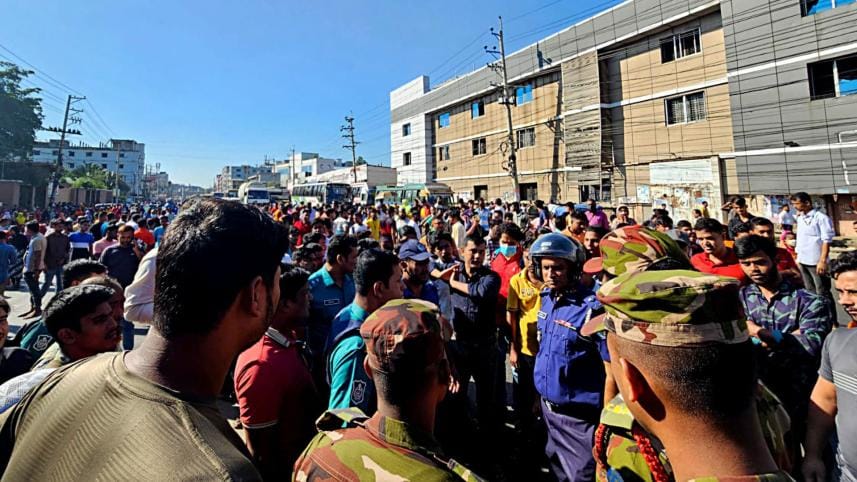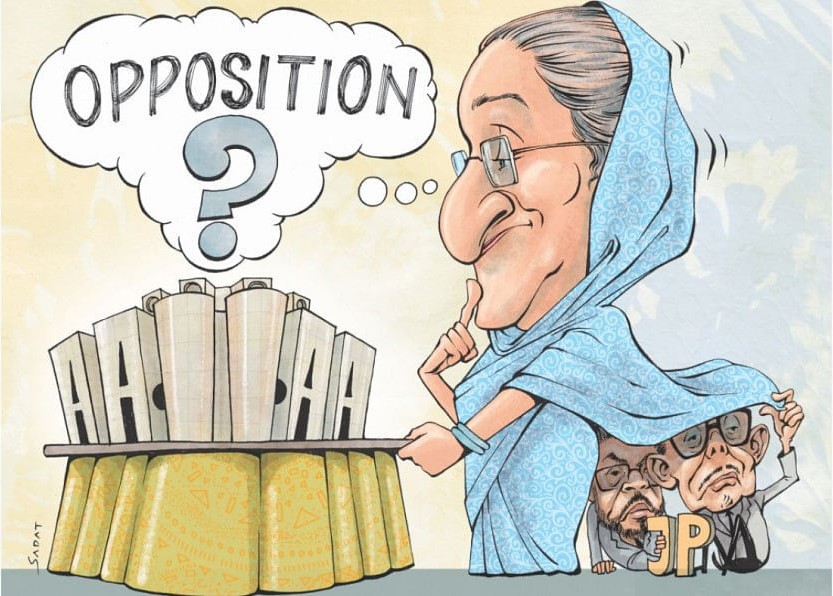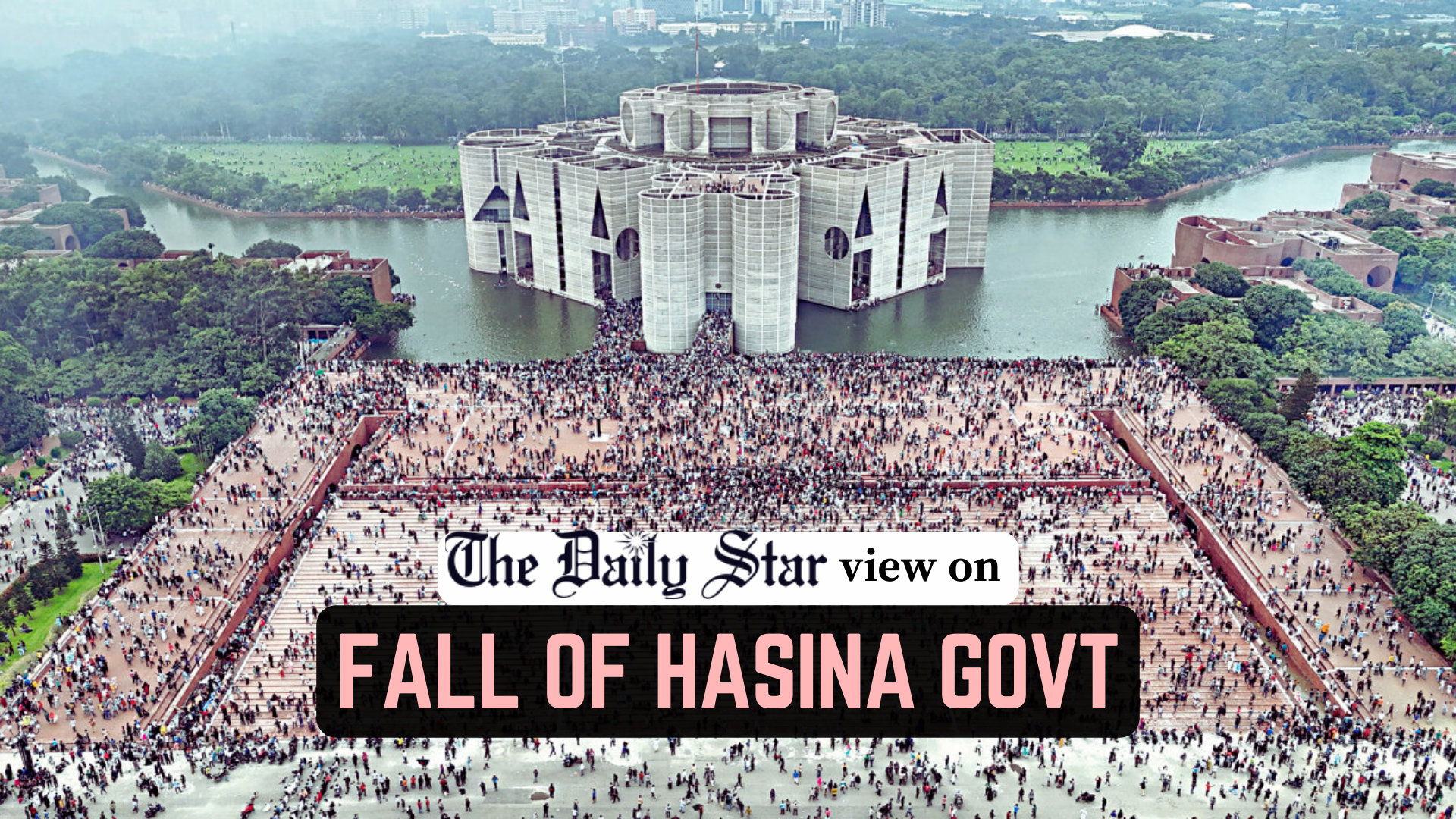How apprehension of AL's comeback is affecting the interim govt

It seems that the apprehension of Awami League's return is haunting the interim government, occasionally affecting its activities and decision-making. The fear of a "return of AL" or a "counter-revolution" is not unfounded. Dictator Sheikh Hasina fled the country in the face of a mass uprising, but the oppressive system she built over the last 15 years has yet to be dismantled. The interim government has formed various commissions for reform, but it may take time and effort to see much tangible results. So, the government must remain vigilant regarding the activities of powerful individuals, institutions, and organisations associated with the past regime. But it should not confuse the manoeuvring of power brokers with the movements of the mass people.
It is natural that after the end of a long undemocratic regime, various sections of society will raise long-suppressed demands. The apprehension about infiltration of these movements by allies of the previous regime is not unreasonable. In this context, how should these movements be addressed?
The democratic approach to understanding which demands are reasonable, which are unreasonable, which are part of a conspiracy, and which stem from real issues is to engage in dialogue with the activists and stakeholders. However, we observe that when any group raises its demands, rather than initiating dialogue, efforts are made to immediately label the activists as enemies of the government and as part of the AL's comeback conspiracy. This approach is reminiscent of how every movement was framed as a BNP-Jamaat conspiracy during Hasina's regime.
Not only the newly emerged movements, but even those that originated during the Hasina regime are now being labelled as AL conspiracies. An example of this is the movement of workers and officials from the Palli Bidyut Samity (PBS). The 80 PBS organisations are responsible for supplying electricity to rural areas, and they are centrally regulated by the Bangladesh Rural Electrification Board (REB)—a statutory body under the Ministry of Power, Energy and Mineral Resources.
Since January this year, PBS workers have been protesting, demanding an end to REB's dual administration, the elimination of discrimination and oppression, the integration of REB and PBS, the implementation of a unified service code, and the regularisation of irregular or contractual employees. PBS workers complain that REB is exploiting the PBSs in the name of regulation. REB buys low-quality equipment, which PBSs are forced to use to maintain the distribution system. If anyone protests, they are transferred, reprimanded, or punished. Additionally, REB charges PBSs 3 percent interest on the cash fund provided by the government to manage PBSs activities. This interest is deducted from the cross-subsidy that profitable PBSs provide to those that are loss-making. As a result, the loss-making PBSs become weaker without receiving the necessary subsidy, while REB increases its savings by depositing the interest in the bank.
To end this discrimination, PBS officials and employees organised a 15-day strike in May and July under Hasina's regime. At that time, the government and REB labelled their movement as a conspiracy against the AL regime. For example, an official letter from REB dated May 7, 2024, stated: "Basically, this movement is part of a conspiracy by anti-government and anti-development groups to obstruct the unprecedented development activities undertaken by the current government in the power sector."
Interestingly, after the fall of the Hasina regime, when PBS activists again raised their longstanding demands, they were labelled as co-conspirators of the AL. Rather than engaging in discussions and negotiations with the activists, REB dismissed 20 PBS officials on October 17, which led to protests and power outages across the country. After that, 8 PBS activists were arrested and remanded under a sedition case filed by REB, accusing them of obstructing power operations with the support of ministers, MPs, and influential figures from the previous AL government.
The PBS activists must have some miraculous powers—apparently, they were anti-Hasina during her regime and became pro-Hasina overnight after her downfall!
The interim government has shown a similar attitude towards the garment workers' movement. After Hasina's fall, garment workers—who had been exploited and oppressed during her rule and were actively involved in the mass uprising—took to the streets to demand an end to their longstanding deprivation. They may have expected that with the country now free from Hasina's dictatorship they could freely raise their demands. Alas! Their movement was also labelled as a conspiracy incited by AL associates and foreign agents. Garment owners and the government tried to suppress it like the previous regime using law enforcement agencies (LEA).
But the demands of the workers were cantered on specific rights, which could not be considered unreasonable. Key demands included the implementation of the existing minimum wage across all factories, settlement of outstanding payments, raising of attendance bonuses, night shift bonuses, tiffin allowances, etc.
After failing to deal with their movement using law enforcers, the interim government and the owners finally accepted the workers' 18-point demand on September 24 through a tripartite agreement. Since then, the situation in the garment sector has largely calmed, which proves that the workers did not take to the streets to demand their rights because of any conspiracy or provocation.
The problem arose because, as per the 18-point tripartite agreement, all dues were to be paid by October 10. But it was observed that some garment factory owners did not pay the dues by the deadline, which led the workers to take to the streets once again. Instead of forcing the owners to fulfil their promises, the interim government cracked down on the protesting workers using LEAs.
In this context, on October 23, LEAs opened fire on workers of the Generation Next Fashions Ltd, who were protesting the non-payment of their salaries for months. Champa Khatun, a 25-year-old garment worker, died of gunshot wounds on October 27. The amount owed to the workers by Generation Next Fashions Ltd, owned by Hasina's close business family, was Tk 21.66 crore only. Notably, Bangladeshi businessman Javed Opgenhaffen, whose family owns the Generation Next Fashions Ltd, organised one of the most expensive wedding ceremonies in Paris last year, spending a million dollars.
Earlier, Kawsar Ahmed Khan (26), a sewing machine operator at Mango Tex factory, was shot dead by LEAs on September 30 while workers were protesting to implement their 18-point demand—which was accepted in the tripartite agreement. More recently, on October 31, two teenage workers—Jhuma Akhter (15) and Al Amin Hossain (17)—were shot by law enforcers while workers from Creative Designers protested the sudden closure of their factories. All of these tragic incidents are the result of viewing people's movements through the lens of "conspiracy" and the alienation of government officials from the crisis faced by the people.
A large number of those killed and injured in the July uprising came from working-class and low-income families. Therefore, the interim government, which came to power through this mass uprising, has a special responsibility to end the ongoing economic discrimination and oppression faced by the working majority. Failing to fulfil this duty would only betray the spirit of the uprising.
Kallol Mustafa is an engineer and writer who focuses on power, energy, environment and development economics. He can be reached at kallol_mustafa@yahoo.com.
Views expressed in this article are the author's own.
Follow The Daily Star Opinion on Facebook for the latest opinions, commentaries and analyses by experts and professionals. To contribute your article or letter to The Daily Star Opinion, see our guidelines for submission.




 For all latest news, follow The Daily Star's Google News channel.
For all latest news, follow The Daily Star's Google News channel. 


Comments